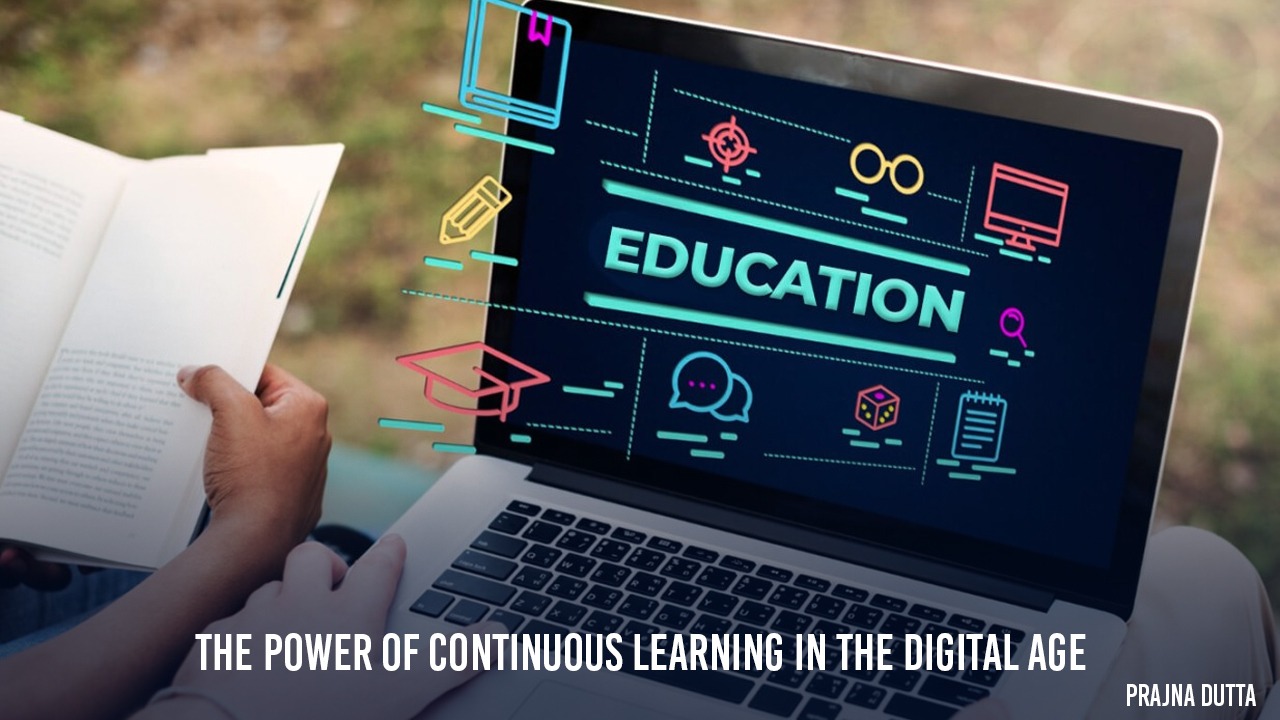In today's fast-paced and technology-driven world, the importance of continuous learning cannot be overstated. With the rapid advancement of technology, automation, and artificial intelligence, the skills that were once valuable in the job market are becoming obsolete, while new skills are in high demand. In this blog, we will explore the significance of continuous learning in the digital age and how it can empower individuals to thrive in a rapidly evolving landscape.
The Digital Age and the Need for Continuous Learning
The digital age has brought about unprecedented changes in the way we live, work, and interact with the world around us. Technology is advancing at an exponential rate, disrupting industries and creating new opportunities. As a result, the skills and knowledge that were once sufficient for a successful career are no longer enough. To stay relevant and competitive in the job market, individuals must embrace a mindset of continuous learning.
The rapid pace of technological innovation means that new skills are constantly emerging, while existing skills are becoming outdated. For example, in the field of software development, programming languages and frameworks evolve rapidly, requiring developers to continuously update their skills to remain competitive. Similarly, in the field of marketing, digital tools and platforms are constantly changing, necessitating ongoing learning to stay ahead of the curve.
Empowering Individuals through Continuous Learning
Continuous learning empowers individuals to adapt to change, acquire new skills, and pursue personal and professional growth. By embracing a mindset of lifelong learning, individuals can future-proof their careers and open doors to new opportunities. Whether through formal education, online courses, workshops, or self-study, there are countless avenues for individuals to expand their knowledge and skills.
Moreover, continuous learning fosters a sense of curiosity and intellectual agility. It encourages individuals to explore new ideas, challenge their existing assumptions, and think critically about the world around them. This not only enhances their professional capabilities but also enriches their personal lives, leading to a more fulfilling and meaningful existence.
The Role of Technology in Facilitating Continuous Learning
Technology plays a pivotal role in facilitating continuous learning in the digital age. Online learning platforms, such as Coursera, Udemy, and Khan Academy, offer a wealth of courses covering a wide range of subjects, allowing individuals to learn at their own pace and on their own schedule. Additionally, educational resources such as e-books, podcasts, and webinars are readily accessible, providing a wealth of knowledge at individuals' fingertips.
Furthermore, advancements in artificial intelligence and machine learning have enabled personalized learning experiences, where content and recommendations are tailored to individual preferences and learning styles. This personalized approach to learning can significantly enhance the effectiveness of educational experiences, ensuring that individuals acquire knowledge in a manner that best suits their needs.
Embracing Continuous Learning as a Cultural Imperative
As we navigate the complexities of the digital age, it is essential for organizations and society as a whole to embrace continuous learning as a cultural imperative. Employers can play a pivotal role in fostering a learning-oriented environment by providing resources for employee development, encouraging skill-building initiatives, and recognizing the value of ongoing education.
Likewise, educational institutions can adapt their curricula to emphasize the development of adaptable, critical-thinking skills that prepare students for a rapidly changing workforce. By instilling a passion for learning and a growth mindset in the next generation, we can ensure that individuals are equipped to thrive in the dynamic landscape of the digital age.
In conclusion, the digital age presents both unprecedented challenges and opportunities, and continuous learning is the key to navigating this ever-evolving landscape. By embracing a mindset of lifelong learning, individuals can adapt to change, acquire new skills, and pursue personal and professional growth. Technology has revolutionized the way we access educational resources, making learning more accessible and personalized than ever before. However, the responsibility of fostering a culture of continuous learning extends beyond individuals to encompass organizations and educational institutions.
As we look to the future, it is clear that the ability to learn, unlearn, and relearn will be a critical determinant of success in the digital age. By prioritizing continuous learning, individuals can position themselves at the forefront of innovation and remain agile in the face of technological disruption. Ultimately, the power of continuous learning lies in its capacity to empower individuals to thrive in an era of rapid change, driving personal fulfillment and contributing to the advancement of society as a whole.

Comments